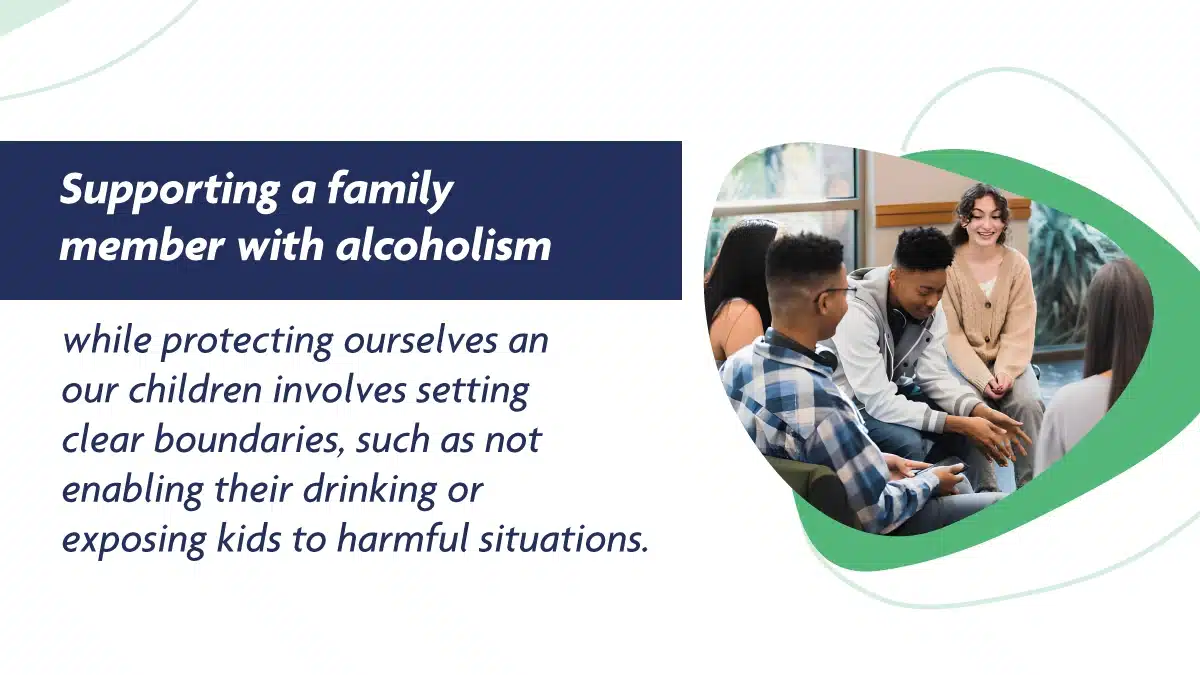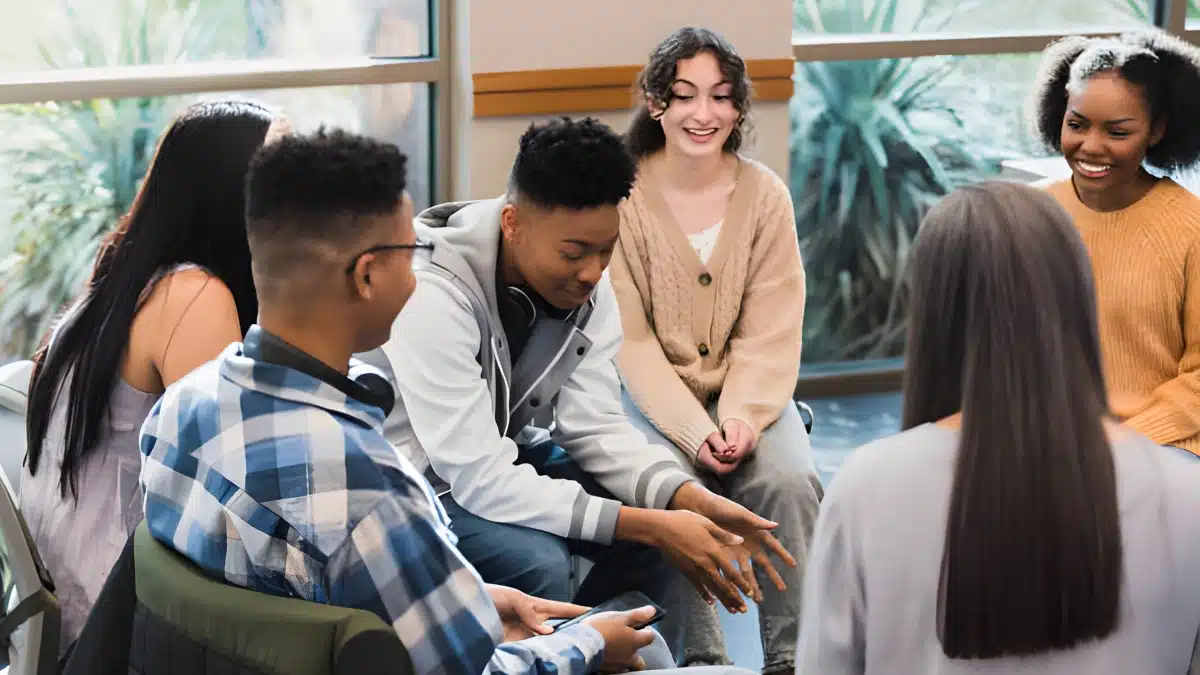Are you feeling overwhelmed because someone you care about suffers from a drinking problem? Know that you’re not alone. Support groups for families of people with alcohol use disorder (AUD) can offer you help and understanding.
These groups bring together individuals going through a similar situation as yours. They provide a safe space to share feelings and learn from others. Read on as we explore some of these support groups.
Key Takeaways
Support groups for loved ones of alcoholics provide a supportive community for those affected by someone else’s drinking. This article covers:
- Al-Anon and Alateen provide support and valuable resources specifically for family members and friends of alcoholics.
- Adult Children of Alcoholics (ACA) focuses on healing from the impact of growing up in an alcoholic household.
- Co-Dependents Anonymous (CoDA) offers a supportive environment for individuals struggling with codependency issues.
Parents, if your teen is struggling with alcohol or drug addiction, our teen rehab facility can help. Dial (845) 479-6888 to get details of our services.

Types Of Support Groups For Loved Ones Of Alcoholics
Support groups for loved ones of alcoholics provide a safe space for individuals affected by someone else’s alcohol abuse and addiction to share experiences, receive support, and learn coping strategies.
Here are some common types of support groups for loved ones of alcoholics:
Al-Anon is one of the most well-known support groups for friends and family members of people struggling with alcohol addiction. Al-anon meetings follow a 12-step program similar to Alcoholics Anonymous (AA) and provide a supportive space for sharing experiences and finding hope and strength.
Alateen is a branch of Al-Anon specifically designed for teenagers who have been affected by someone else’s alcoholism. It offers peer support and guidance for young people dealing with the challenges of living with an alcoholic family member or friend.
ACA is a support group specifically for adults who grew up in families affected by alcohol addiction. It focuses on addressing the impact of childhood experiences in alcoholic households and offers a path to healing and recovery.
CoDA is a support group for individuals who struggle with codependency, which often manifests in relationships with people with an addiction, including alcoholics. It helps participants develop healthier relationships and boundaries.
SMART Recovery offers a program specifically tailored for family and friends of people struggling with addiction issues, including alcoholism. It provides evidence-based tools and techniques to cope with the challenges of supporting a loved one in their recovery journey.
FA is a support group program designed for relatives and close friends of individuals who have substance use disorder (SUD), including alcoholism. It provides a supportive space for participants to share their common experiences, feelings, and challenges related to their loved one’s addiction.
Some therapists or counseling centers offer group therapy sessions specifically for families affected by alcoholism. These groups provide a structured environment to address family dynamics and develop healthier communication patterns.
DRA is a support group for individuals who struggle with both substance abuse and mental health issues, as well as their loved ones. It addresses the unique challenges faced by individuals dealing with co-occurring disorders.
Each type of support group offers its approach and focus, so individuals may find it helpful to explore multiple options to find the one that best meets their needs.
Frequently Asked Questions (FAQ)
How can I find a local support group dedicated to loved ones of alcoholics?
To find a group for people with loved ones who drink, try a few steps.
- Use the web and search for “support groups for loved ones of alcoholics near me.” Sites like Meetup or Psychology Today may help.
- You can also check community centers, churches, or hospitals. They might know of groups close by.
- Another option is to call helplines like the SAMHSA’s National Helpline at 1-800-662-HELP. They can guide you to local resources.
Once you find a group, give them a call or visit a meeting to see if it’s right for you.
What should I expect from my first support group meeting?
In your first meeting, expect a warm welcome from others with similar experiences. You’ll likely hear stories from different people and have the chance to share your own if you feel comfortable. Expect a supportive atmosphere where everyone listens without judgment. It’s okay to listen at first if you’re nervous.
Remember, the goal is to feel understood and supported. You might leave feeling hopeful and less alone, knowing others understand.
How can we support a family member who is struggling with alcoholism without causing emotional harm to ourselves or our children?
Supporting a family member with alcoholism while protecting ourselves and our children involves setting clear boundaries, such as not enabling their drinking or exposing kids to harmful situations.
Encourage the family member to seek professional help and offer love and support. It’s crucial to communicate openly about feelings and concerns, emphasizing that their behavior impacts everyone. Seek support from friends, family, or support groups to navigate challenges together.
Supporting Teens On The Road To Recovery
Parents, if you’re concerned about your teen’s struggle with alcohol use disorder (AUD), you’re not alone. Our teen treatment facility offers a residential rehab program tailored to support your child’s journey to recovery.
Our program offers a secure environment where your teenager can recover from addiction. We use a combination of therapies, such as individual counseling, group therapy, family sessions, and engaging activities like art and music therapy to address the underlying causes of addiction. Our goal is to empower your teen to overcome addiction and build a brighter future.
Contact us at (845) 479-6888 today to learn more and take the first step towards your teen’s recovery. Together, we can guide them towards a healthier, happier life.


